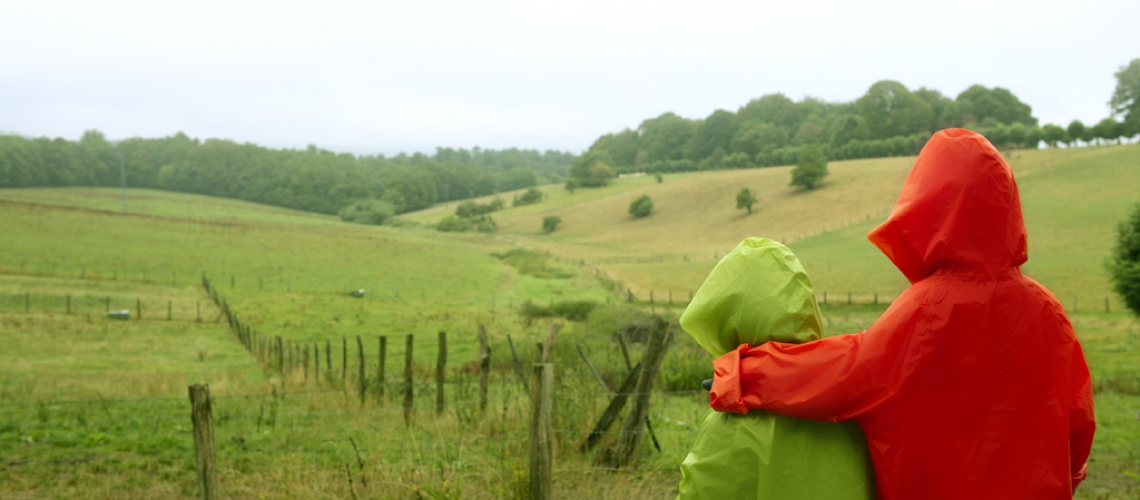Today I am thrilled to have an interview on the blog with Loretta from Blogitmum about how her family overcame the relentless bullying of her son. I hope this gives hope to others out there who may be experiencing something similar.
Can you tell me how you first knew your son was being bullied?
My husband and I first suspected our son was being bullied when his behaviour began changing. His was always a happy, energetic little boy, constantly chatting and laughing. Then, we noticed he had become withdrawn and reserved. It was slight at first, then over time, it became more evident. His confidence plummeted and he stopped doing the things he loved. He didn’t want to ride his motorbike anymore because he thought he wasn’t any good at it, he didn’t want to join into groups of kids playing and was happier to stand on the sidelines. He was just not himself, hesitant to try anything new and reluctant to do the things he had always loved doing. We realised something was going on, and asked him many times. I don’t think he knew how to express the words, and so always answered “Nothing”. Another factor was that we were friends with the boy’s family in question, and our son thought he would be upsetting everyone if he told us what had been happening.
Then, an incident happened at school between this boy and another. When I mentioned it to my son, his face lit up as though suddenly he could talk, as though it was ok because now everyone knew and had seen what this boy was about. He started to tell me about the incident and then it all just flowed from there. He told me what this boy had been doing to him and how it made him feel.
What were some of the ways he was bullied?
He was bullied in a number of different ways. At first it was verbal, negative taunts and teasing, which plays with your mind and generates negativity and doubt in yourself. There was also the occasional push and shove and once or twice there had been a fight. Then there was the social/emotional bullying, rumours and ostracising, taunts like, “You don’t belong with us”, “No one likes you”, “Look out people are after you”. That kind of thing. Last year and early this year, there was also the issue of cyberbullying, through instagram.
What was your initial reaction to the bullying? Did you turn to anyone for help?
Our initial reaction to the bullying was one of anger. We wanted to protect our child and make sure the parents of this boy knew what their son had been doing. No one wants to see their child hurt. At that point I can’t say that there was any understanding towards this other child on our part, just anger, we had seen what our son had been through, and we knew this boy had form. We felt an overwhelming feeling to protect our son and to help him understand how to deal
with these types of people and situations. We didn’t turn to anyone for help, we made the mistake of approaching the parents, we thought that this would be best, seeing that we knew them.
What was some of the advice you received? What was most helpful? What was least helpful?
Some of the advice we received from other people who were aware of the situation was disappointing. They told us to let it be, that we had no idea who we were dealing with, (i.e. the parents of the boy), and that we were fighting a losing battle. But, we were not going to let our boy be a victim, so we ignored this “advice” and decided to stand up for our son and what we believed in. We were not about to let this continue and allow our son to believe that this boy’s opinion
of him was the truth, when it was just based on jealousy, lies and hate.
How did the school approach your son’s bullying?
The school’s approach to our son’s bullying was not really effective. School policy involves “restorative practices”. This in effect meant that the bully didn’t have to apologise or be accountable in any way for his actions. There were no repercussions or punishment. Instead, the kids were made to spend time together at lunchtime by playing games like “Uno”, under teacher supervision. I was told, by the deputy principal, that there were no negatives, there was no point in
dwelling on the past, instead we needed to look forward in a positive manner and learn to work together. Sounds great, I know, but unfortunately it did not work, well at least not for us anyway. The child did not learn, and continued along his usual ways. He had learnt however, what he could get away with and so became more deceitful in the way he delivered his intentions. In a meeting I had with the principal and the mother of this child, the principal asked me if I had seen in the newspaper that weekend the article which wrote about how a bit of bullying is good for you! I couldn’t believe she would say this in front of a woman who saw this as confirmation that her son could do no wrong! A bit of bullying, the odd taunt and banter is manageable and necessary as it does build resilience, but this situation was well past that. It was hurtful and its consequences were negative, and a child, my child, was getting hurt. So no, even though I understand the overall concept, I don’t agree, saying that in front of the mother of this boy was like putting fuel to fire! So, nothing much was really done to help us through this situation, the boy got away with everything, and continued to do so, not only with my son, but with others. He was somehow protected while his victims were left to deal with the issues that he created.
We knew that we could not rely on the school to help us through this, so we decided turn this situation into a positive, by teaching our son how to deal with this problem and rise above it. After all, bullies will always present in our lives, be it at work, social groups, school, just in life. It’s best to know how to deal with them, because they will never really go away, there will always be one!
What were the strategies you used as a family to help your son move forward?
We knew that we had to approach this as a family, as one. We never stopped talking to our son. We talked wherever, whenever. When a child goes through such an experience their sleeping patterns can be affected, and this happened to our son. There were nights where he just could not sleep. He was only nine when it all began and it broke my heart to see a child, who should be so happy and carefree, have to deal with the feelings and emotions that he was experiencing as a result of bullying. There were nights when he didn’t fall asleep until 11.30 or even midnight. So, we talked. Believe me it wasn’t easy, there were many nights when my husband and I just wanted to go to sleep, but we knew we had to be there for him. We spoke about his feelings, about what happened at school, about what he could do next time to change a scenario, about why this boy was bullying him. We tried to help our son understand this boy’s motives, and in doing so, we helped our son understand that bullying arises because of the bully’s own personal issues and inadequacies. That he was picked on because he was a threat to this boy, and because he is a beautiful, sensitive person, and it was easier for this boy to target him, as he was less likely to retaliate. We helped him understand that this boy acted out of hate, that his words and actions had no meaning and that they should never form part of our son’s opinion of himself because they were based on lies. The communication channels were always open, and no subject was off limits. We encouraged him to do the things he loved to do, even little things can help re-build confidence. Re-building confidence is of utmost importance, because when a child is bullied, they very quickly lose confidence in themselves and their abilities. We spent a lot of time as a family, and at the end of every day we made sure we had time to just sit and be together. We didn’t dwell on the bullying and create a hate campaign against this boy, instead we focused on creating resilience, self-belief and self-confidence. We praised our son, and celebrated his achievements but also helped him through his failures. We helped him see how many people around him loved him and how important he was in their lives. We taught him that bullies are people who have a lot to learn, that he should never believe someone else’s negative words of hurt and hate because he was better than that. That in this world, unfortunately there are such people who try to bring you down, but you can’t let them. Let them have their opinion, who really cares what they think anyway! Above all, we never let him slip into a world of silence, communication was and always will be essential. As I said, it was not easy, but it was worth it.
What final piece of advice would you have for others who may have a child experiencing something similar?
My final piece of advice to anyone going through a similar situation is to listen to your child. Listen to what they have to
say, and watch their behaviour. If you suspect anything, talk about it ask your child if they are ok, if something is going on. They may shut you out at first, but you must persevere and never give up. Communication is the key. Kids need to know that we are there for them no matter what, and we must give them time, our time, to talk, to listen, and to help. If you find that you can’t help or the problem is bigger than you anticipated, then seek professional help. There are so many organisations that offer guidance and support. It is also important to tell the school. Hopefully they have an effective bullying policy in place and together you can work it out.
Thank you to Loretta for your honesty and sharing your experiences. There is never any substitute for communication and perseverance when it comes to parenting.
If you would like to read more from Loretta, you can find her blogging at Blogitmum



This Post Has 4 Comments
Loving the new look Martine – will I get to see you at PB in a few weeks?
I certainly will be Em! Look forward to catching up
I’m so sorry to hear that the school and parents of the bully weren’t helpful. Our daughter was bullied when she was in Year 8 by two former best friends. As parents, we ended up deciding to talk to one of the sets of parents as we knew them and had a friendly relationship with them. They were fantastic and it really settled down after that.
That is great that you were able to resolve it that way Janet. I do think we need to look at individual cases and decide what works. Very often it is allowing a child to see things from others perspective and I believe parents are the best people to help do this.
Comments are closed.